The impact of stress on oral health and effective solutions are discussed.
Stress not only causes general health issues but also has a direct impact on oral health. People experiencing prolonged stress commonly experience consequences like tooth erosion, gum inflammation, and immune system suppression. This article provides a comprehensive overview of stress-related effects on oral health, along with effective prevention and care guidance from the experts at The East Rose Dental Clinic.
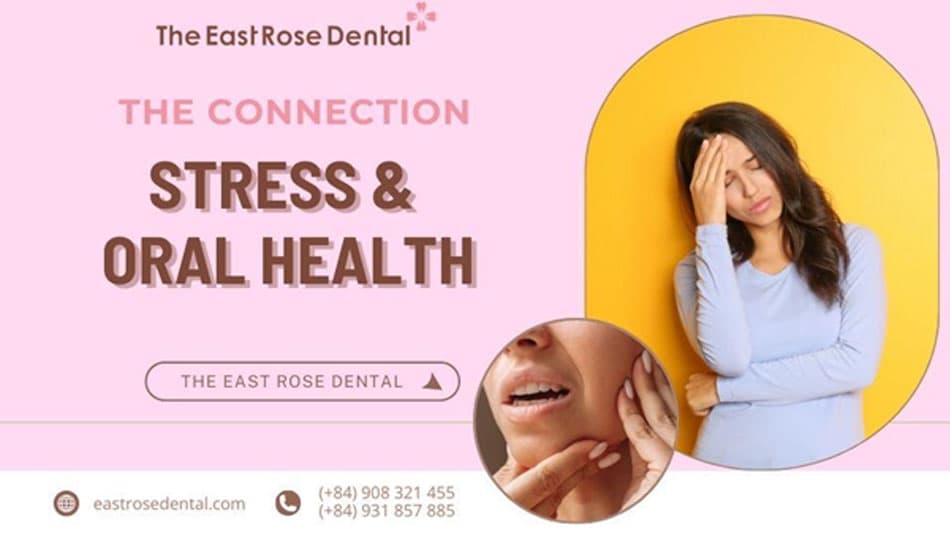
The Connection Between Stress and Oral Health
Many people mistakenly believe that prolonged fatigue and stress only affect mood and overall health. However, stress can also seriously impact oral health, and if left unchecked, it may lead to tooth loss and periodontal diseases in the future.
Prolonged stress causes the body to release high levels of cortisol, weakening the immune system. This makes the mouth more vulnerable to bacterial attacks, increasing the risk of gum disease, cavities, and infections. Additionally, many people tend to grind their teeth when stressed, causing dental wear and jaw muscle pain. Stress can also reduce saliva production, leading to dry mouth, bad breath, and an elevated risk of cavities due to the lack of saliva’s natural protective effects. Therefore, managing stress is essential to prevent serious oral health issues.
How Stress Can "Devastate" Oral Health
Numerous studies and evidence indicate that prolonged stress affects oral health in various ways. Here are the negative impacts caused by stress.
Teeth Grinding and Tooth Wear
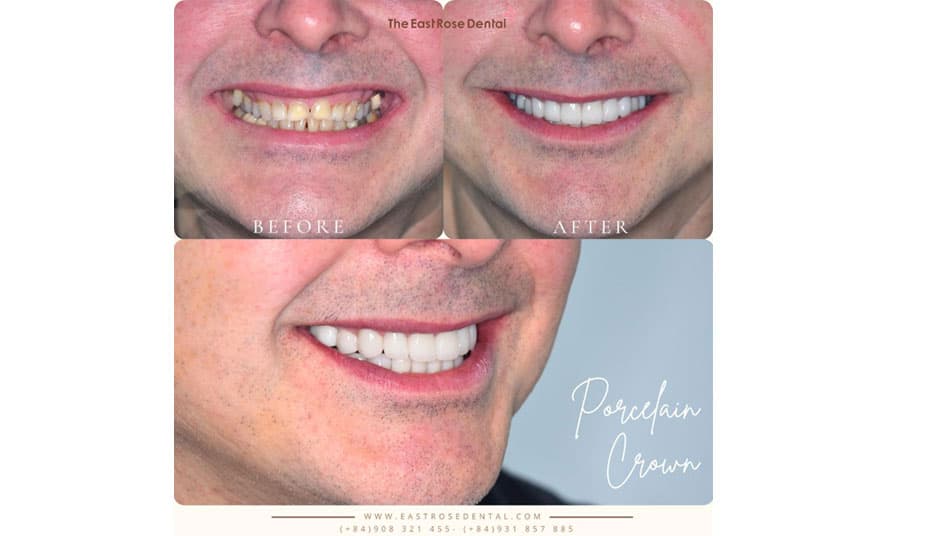
Life pressures and daily frustrations can lead to an unconscious habit of teeth grinding, especially during sleep. Grinding not only puts pressure on the teeth but also damages tooth enamel, making teeth more susceptible to wear and sensitivity. This habit can also strain the jaw muscles, causing headaches and muscle pain and sometimes leading to temporomandibular joint (TMJ) disorders. If this condition persists without intervention, such as using a night guard or stress reduction techniques, tooth wear can become severe, impacting chewing function and aesthetics.
Dry Mouth
Stress often causes the body to reduce saliva production, which can lead to a dry mouth. Saliva plays a crucial role in protecting teeth from bacteria and acids by washing away plaque and supporting the remineralization process of teeth. Stress-induced dry mouth creates an environment for bacteria to thrive, increasing the risk of cavities and gum disease. Furthermore, dry mouth can cause discomfort, diminish quality of life, and increase the likelihood of developing gum diseases if not treated promptly.
Weakened Immune System in the Oral Cavity
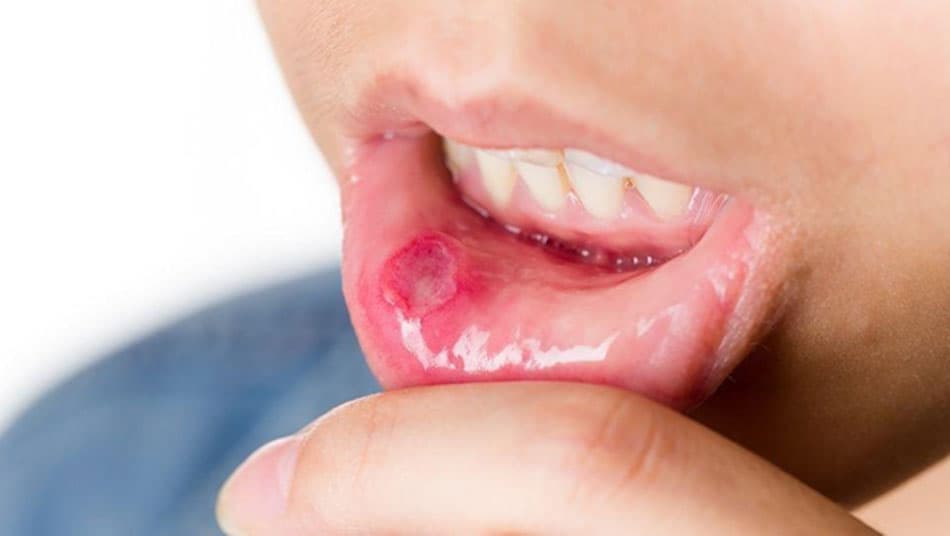
Prolonged stress increases cortisol levels, negatively impacting the immune system. Weakened immune systems make the body more vulnerable to oral cavity bacteria, increasing the risk of gum diseases like canker sores, gingivitis, periodontitis, and infections.
These conditions not only cause pain but can also damage gum tissue and jawbone if not treated promptly. A weakened immune system slows down the healing process in the oral cavity, leading to more serious complications in the long run.
Periodontitis
Gingivitis is one of the common oral health issues related to stress, as a weakened immune system allows bacteria to thrive. Symptoms of gingivitis typically include swelling, redness, pain, and bleeding when brushing or flossing. If not managed and treated promptly, gingivitis can progress to periodontitis, a more severe condition that can lead to tooth loss. This impacts chewing function, aesthetics, and overall health.
Bad Breath
Stress causes dry mouth and an increase in bacteria in the oral cavity, leading to unpleasant breath. Dry mouth eliminates the natural cleaning mechanism of saliva, which helps wash away bacteria and leftover food. When bacteria in the mouth proliferate, they break down food particles, producing volatile sulphur compounds that create an unpleasant dor. In addition to diminishing self-confidence, bad breath may indicate more serious oral health issues that require attention.
Increased Risk of Tooth Loss
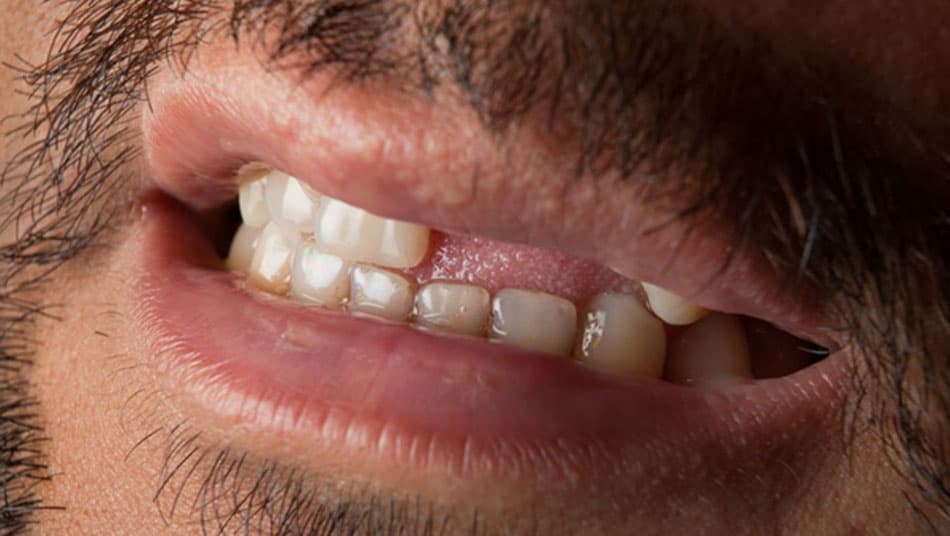
Prolonged stress can lead to an increased risk of tooth loss due to issues such as gum disease and teeth grinding. Stress can severely damage the supporting gum tissue and bone when it causes gingivitis or progresses to periodontitis. If not treated promptly, periodontitis will destroy the bone structure around the tooth roots, causing the teeth to become loose and at risk of falling out.
Additionally, the stress-induced habit of teeth grinding puts significant pressure on the teeth, causing enamel erosion and weakening the tooth roots, which can lead to fractures and breaks. These effects leave teeth less securely supported and more susceptible to loss.
Creating Bad Habits
People under stress often tend to adopt unhealthy eating habits, consuming more sweets and sugar-rich foods, which increases the risk of tooth decay. Additionally, stress can lead to habits like smoking and drinking alcohol—both of which are harmful to teeth and gums. Smoking reduces blood flow in the mouth area and increases the risk of gum inflammation, while alcohol can dry out the mouth, creating an environment for bacteria to thrive and cause harm to teeth.
Preventive Solutions and Oral Care for Stress
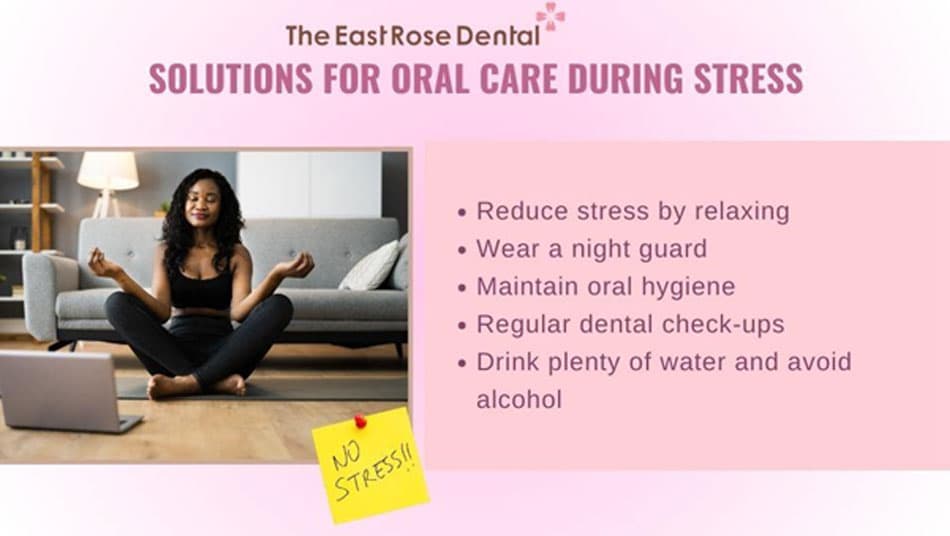
Stress is an issue that no one wishes to encounter. However, if you are experiencing this condition, here are some tips from The East Rose Dental Clinic to help you effectively protect your oral health:
- Reduce stress through relaxation: Practice relaxation techniques such as meditation, yoga, deep breathing, or taking walks outdoors to alleviate anxiety. These activities help lower cortisol levels in the body, thereby mitigating the effects of stress on the immune system and oral health.
- Wear a night guard: If you have a habit of grinding your teeth, especially during sleep, wearing a night guard can help reduce pressure on your teeth and protect enamel from damage. You should visit a dental clinic to get a proper fitting for the guard.
- Maintain a thorough oral hygiene routine: Brush your teeth at least twice a day with fluoride toothpaste and floss daily to remove plaque. Stress-induced dry mouth can lead to rapid bacterial growth, so regular oral hygiene helps reduce the risk of cavities and gum disease.
- Schedule regular dental check-ups. When under stress, oral health issues may arise that are not easily noticeable. Regular dental check-ups can help detect and treat conditions such as cavities, gum disease, or the risk of tooth loss due to grinding.
- Drink plenty of water and avoid alcoholic beverages. Staying hydrated helps maintain saliva production, cleanses the mouth, and reduces the risk of a dry mouth due to stress. Avoid excessive coffee or alcoholic beverages, as they can cause dry mouth and increase the risk of oral health problems.
You should not underestimate the impact of stress on oral health, and being aware of these dangers can help you take effective preventive measures. We hope the information from The East Rose Dental Clinic will help you understand the importance of this issue and choose the most effective solutions for improvement.
Services
Working Time
- Monday - Friday: 08:00 - 19:00
- Saturday: 08:00 - 18:00
- Sunday closed
Contact Info
- Hotline 1: (+84) 908 321 455
- Hotline 2: (+84) 931 857 885
- Mobile: (+84) 8 3925 8778
- Phone: (+84)2 838 258 778
- info@dentalrose.net
- rosedentalclinicvn@gmail.com
 English
English  Tiếng Việt
Tiếng Việt

